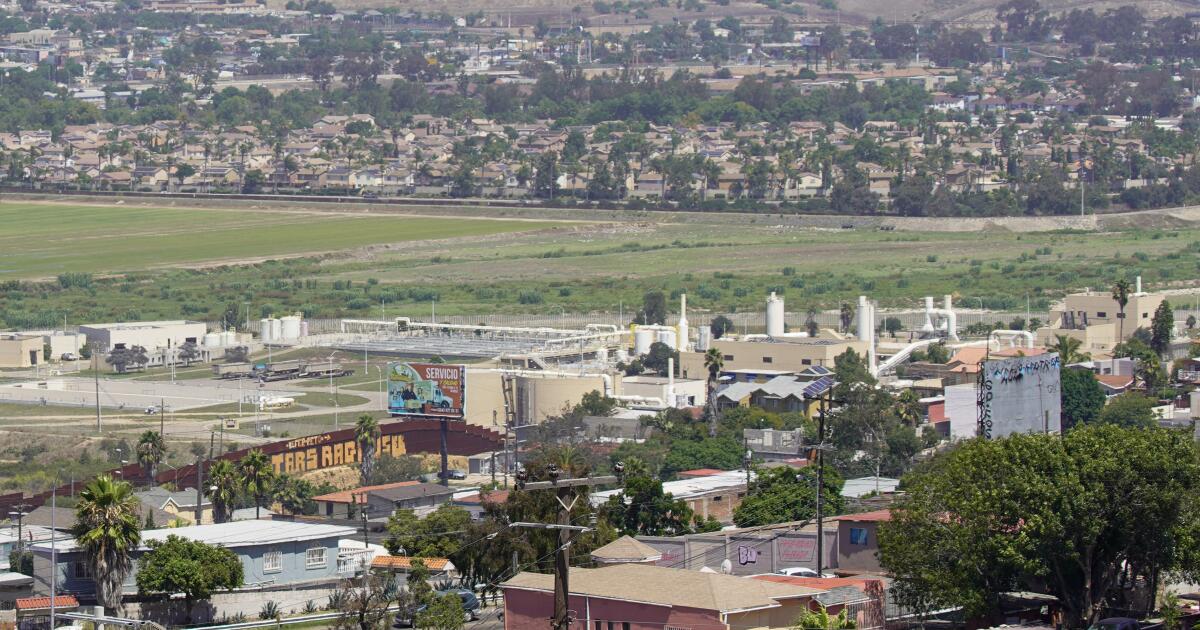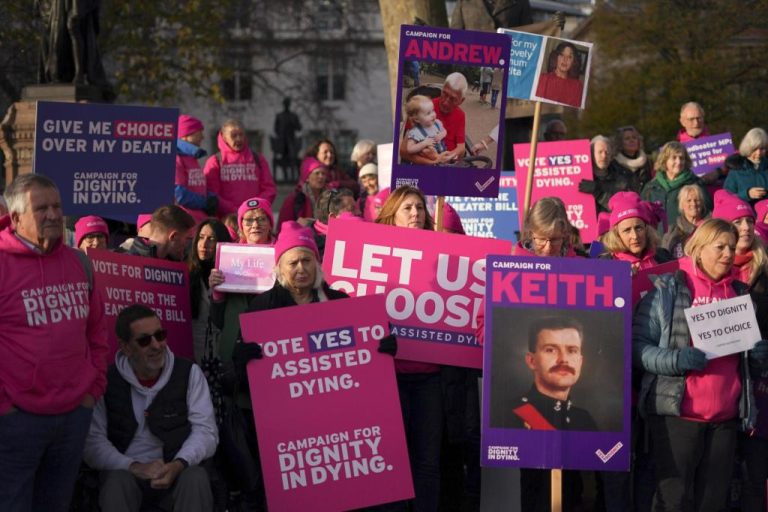

It seems like this is how government is supposed to work.
A coordinated effort by officials at the local, state and federal levels — including San Diego and California representatives in the House and Senate — led to a significant step in tackling a problem of, literally, international proportions.
That unified front helped persuade the Biden administration to propose nearly doubling the money targeted at stemming cross-border sewage pollution from Mexico that has been plaguing San Diego’s South County communities for generations.
It wasn’t always pretty, with people on the same side sometimes disagreeing on the approach or pace of the effort.
Nevertheless, President Joe Biden this week announced he is including $310 million more to repair and expand the South Bay International Wastewater Treatment Plant near San Ysidro in his $56 billion supplemental domestic funding request to Congress.
As is usually the case with progress on the border sewage problem, no one is spiking the football right away.
Biden sent the funding bill to Congress on Wednesday, the same day that Rep. Mike Johnson, R-La., was elected speaker of the House of Representatives, filling the powerful position after a three-week vacancy.
On its face, the timing would seem symbolically positive. The House was paralyzed without a speaker and in theory can start working again. Whether and to what degree that actually happens is far from certain.
The juxtaposition of the two developments still comes with a sense of foreboding. The partisan split in Congress remains as bad as ever, and any notion that infighting among Republicans will cease now that the speakership is settled likely is wishful thinking.
There’s plenty in the Biden request many Republicans might not like, such as funding for child care and aid for low-income people. Among other things, the money also would go toward disaster response and national security.
The proposal also comes just after Biden asked Congress for $105 billion that includes military and humanitarian assistance for the conflicts in Ukraine and Israel.
Apart from what issues Republicans may have with the merits of the spending, some members have demonstrated they are loathe to support almost anything that advances Biden’s agenda.
Further, some House Republicans seek to punish fellow GOP members for even voting with Democrats, as former Speaker Kevin McCarthy learned when he supported a stopgap measure to temporarily keep the federal government open.
Washington continues to face a shutdown without similar action by Nov. 17.
Further, not all congressional Democrats are likely to support everything in Biden’s two funding measures, or another stopgap bill if one emerges. But the administration and Democratic leaders are more likely to successfully negotiate with their partisan colleagues than with Republicans.
Rep. Scott Peters, D-San Diego, was among the leaders who appealed to the Biden administration to include the border pollution funding in the supplemental bill. That’s no small achievement for him and the others, but Peters was clear-eyed about where things stand.
“Make no mistake, this is not a ‘mission accomplished’ moment,” he said in a statement. “This funding will need to be approved by both chambers of Congress, which remains an uphill battle. . .”
It doesn’t hurt that Peters has a stronger record of bipartisan collaboration on legislation than many other members of Congress in both parties.
Other Democratic members of the San Diego congressional delegation supported the cause and Sen. Alex Padilla, D-Calif., played a key role, as did state Senate President Pro Tempore Toni Atkins, D-San Diego, who also credited Gov. Gavin Newsom in the effort.
Local officials, particularly Imperial Beach Mayor Paloma Aguirre, also a Democrat, have been increasingly vocal about demanding action.
Some local Republicans also have been working to secure the funding, including Coronado Mayor Richard Bailey and former Congress member Brian Bilbray, a former county supervisor who waged a high-profile fight against border sewage when he was mayor of Imperial Beach in the 1970s and 1980s.
Earlier this week, the San Diego County Board of Supervisors took important ancillary action on the border problem. The supervisors unanimously directed $5 million to build a sediment-and-trash-control basin and dredge drainage channels in the Tijuana River Valley, according to Tammy Murga of The San Diego Union-Tribune.
The reaction to the announcement of the $310 million may have been somewhat muted for various reasons — the foremost being it’s not a done deal.
Also, this has been a slow, incremental process to get a plan and funding for it in place to clean up the border pollution. A lot of figures have been tossed around, with confusion about what actually has been appropriated, what is in the pipeline and what has been discussed generally.
A couple of years ago, $300 million from the federal government was approved as a big down payment to address the problem. That was boosted to $350 million with other pots of money. That’s what’s available. The additional money proposed by Biden this week would bring the total funding to $660 million.
That’s more than the $630 million plan laid out by the Environmental Protection Agency in 2021 to address pollution in the Tijuana River watershed.
Last month, an official with the International Boundary and Water Commission (IBWC) said the overall cost for the plant and related planned border infrastructure has increased to about $900 million.
Part of the higher cost results from breakdowns at the international plant, largely due to a lack of maintenance. Engineers determined repairs would cost about $150 million — half of the original allocation to expand the plant.
Tropical Storm Hilary in August made the situation worse, damaging the plant and shutting down its operation.
Local officials working for years to upgrade and expand the plant were shocked by these developments and raised questions about the plant’s maintenance.
The California Coastal Commission also has demanded answers from the IBWC and expects a response next month.
Navigating the politics to get the border project done has been difficult.
Concerns about how the international plant is being managed haven’t made it any easier.
What they said
New York Times Pitchbot (@DougJBalloon), a parody feed on X (formerly Twitter).
“We were told a recession was coming. Now the economy is booming. Another broken Biden promise.”








